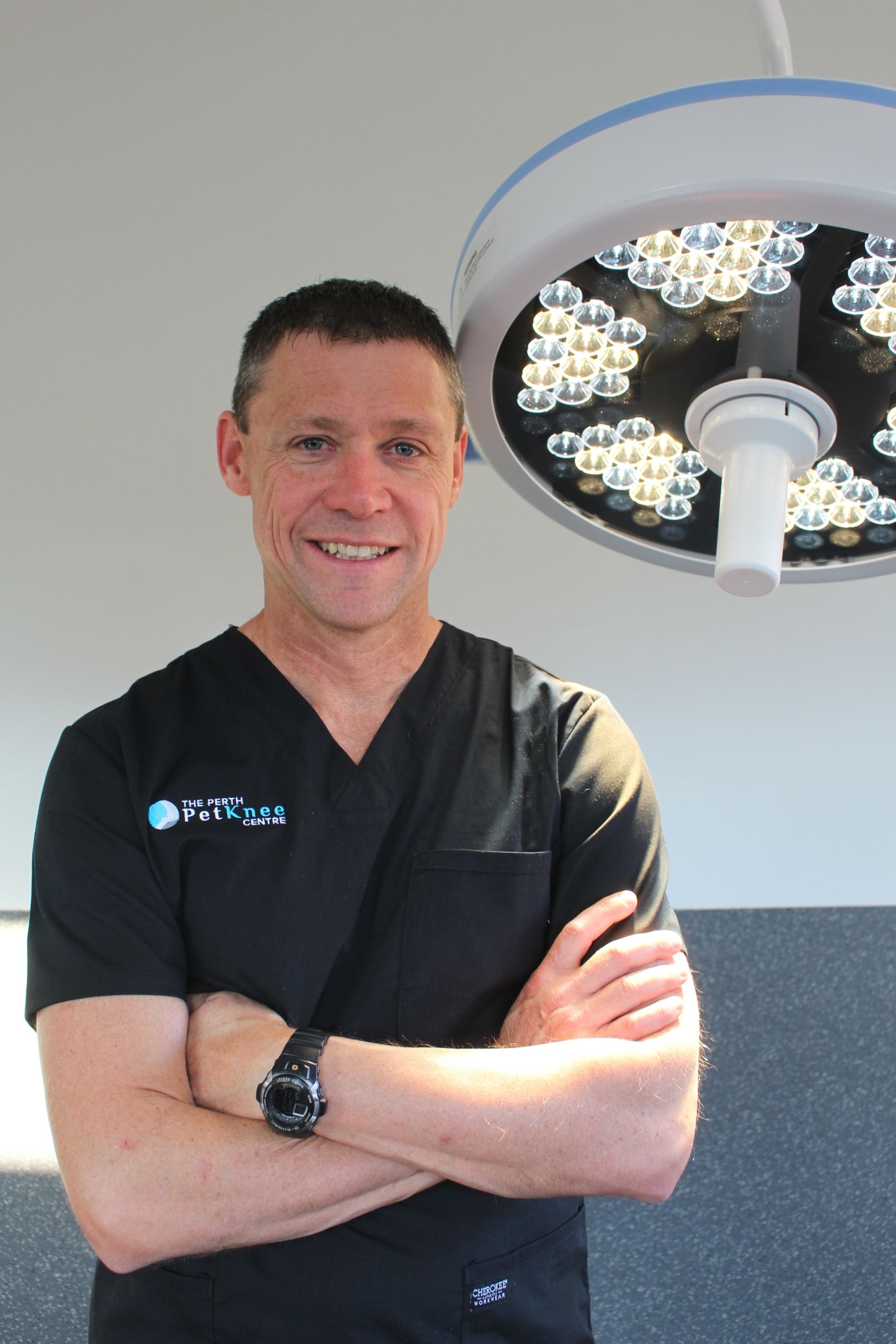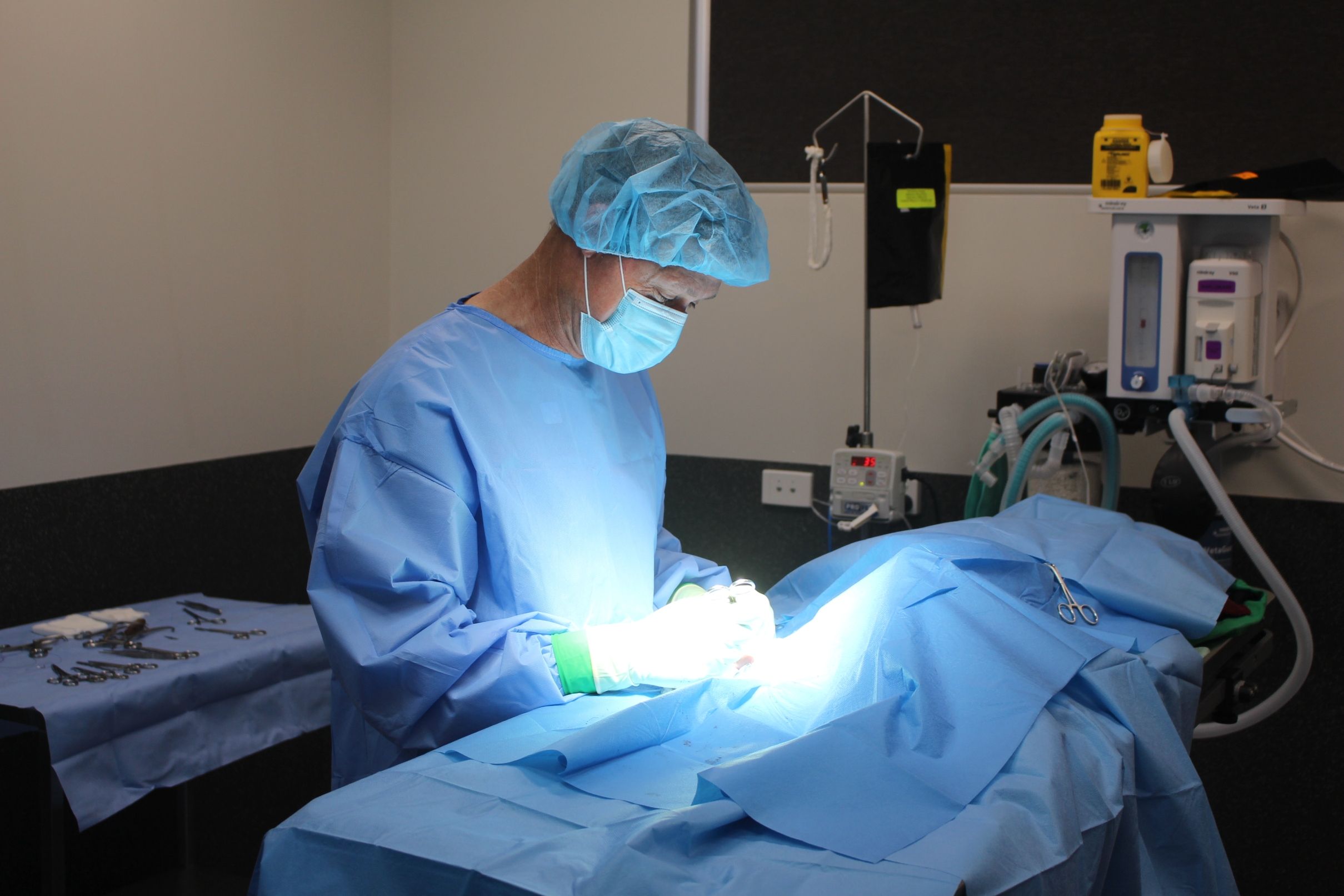Veterinary scene down under: Perth welcomes first dedicated pet knee surgical center, plus helping professionals detect and prevent infectious diseases
Updates on a new dedicated pet knee surgery clinic, plus the launch of the Australian-led veterinary epidemiology training resource
Western Australia’s first knee-specific vet clinic
Two veterinarians from Perth in Western Australia have opened the state’s first dedicated pet knee surgical center, focused on canine tibial plateau leveling osteotomy (TPLO) cruciate repairs and patella luxation surgery.
The Perth Pet Knee Centre will accept referrals from other veterinary clinics to perform orthopedical knee procedures in dogs, a second opinion consultation service for atypical hindlimb lameness cases, and a stifle radiograph interpretation service.
Prior to setting up the center, Chad Marriott, BSc, BVMS, MANZCVS (Small Animal Surgery) had focused his career on performing advanced orthopedic procedures whilst working for a 16-clinic veterinary practice group.
Chad Marriott, BSc, BVMS, MANZCVS (Small Animal Surgery), co-founder of The Perth Pet Knee Centre.

“I had been working for Vetwest Animal Hospitals for 13 years, and during the latter part of my time there, my workload had become about 90% TPLO and patella surgeries. When I was approached with the idea for this new clinic, I thought it was an opportunity to continue to do something I enjoy but in a fresh environment,” explained Marriott.
“I was also intrigued by the idea of having a practice where we only looked after one part of the body. While this is commonplace in human surgery, as far as I’m aware we are the only practice in Australia that takes this approach,” he concluded.
The center has a strict professional etiquette policy of not performing any other procedures or dispensing medication that is not directly related to their procedures.
“Our process is that pet owners see their regular general practice veterinarian initially – who will examine the patient and take screening radiographs to confirm the diagnosis. The pet will then come and see us for surgery and a post-operative check-up at two weeks,” explained Marriott.
“My preference is for the patient to be under our care from the day of surgery until the post-operative radiographs, at which point they shouldn’t need to see us again. For patients that have traveled a great distance to see us, we can work with their referring veterinarian to have them take the post-operative radiographs if the pet owner would prefer.”
Marriott performing surgery

Marriott’s business partner, Trevor Pavey, BSc, BVMS, said there are several advantages to having the facility focus solely on a single joint.
“One advantage is the ability to carry a reduced inventory of implants geared to a limited number of procedures compared to a practice that might be doing a full range of orthopedic procedures,” said Pavey.
“This approach also allows us to keep waiting times for clients to a minimum, whereas other referral practices that are offering many different surgeries have higher caseloads and inevitably longer waiting times.”
Demand for the niche service is already strong, and whilst the surgical focus may be limited to knee surgery, the duo is committed to providing a caring and streamlined service to pet owners.
“For me, the biggest advantage in doing a small number of procedures repetitively is that it allows us to be very good at what we do, both with regards to clinical outcomes but also to address an unmet need to improve client communication and education,” concluded Marriott.
Animal disease detective’ training package
The Asia Pacific Consortium of Veterinary Epidemiology (APCOVE) recently launched its field veterinary epidemiology e-learning resource, which has been developed to aid veterinarians and animal handlers in detecting and preventing infectious diseases in the field before they emerge as pandemics.
The modules were developed by a team of over 40 authors and reviewers who have extensive experience in epidemiology education and in conducting epidemiological investigations.
“This comprehensive educational resource will enhance users’ skills in veterinary epidemiology and their capacity for early detection and prompt response to disease outbreaks. They will be able to evaluate surveillance systems, manage, and analyze surveillance data, and prepare surveillance summary reports,” explained Navneet Dhand, BVSc, MVSc, PhD, Grad Cert (Higher Ed), associate professor at the Sydney School of Veterinary Science at the University of Sydney, APCOVE leader.
Navneet Dhand, BVSc, MVSc, PhD, Grad Cert (Higher Ed), leader of APCOVE

The training package consists of 36 e-learning modules focused on field veterinary epidemiology and covers topics including outbreak investigation, surveillance, data analysis, One Health, biosecurity, disease control, risk assessment, leadership, and communication.
“Completing the training offers various benefits to participants. They will be well placed to work as a part of a team conducting risk assessments to evaluate the risk of incursion of a disease-causing agent into a region or a country. The training modules will enhance their capacity to implement biosecurity protocols and control infectious diseases at a farm. The modules also aim to improve collaboration and communication among various sectors to tackle infectious disease threats.”
The modules are free for anyone to access from anywhere in the world, and include images, videos, case studies, scenarios, and real-life examples. The resource would be of benefit to veterinarians who want to improve their skills in investigating disease outbreaks and conducting surveillance.
“This will help them perform better in their jobs and strengthen the capacity of veterinary services to prevent, detect, and contain emerging infectious diseases and transboundary animal diseases. The resources may also help veterinary graduates get into government roles requiring skills in biosecurity, surveillance, disease investigation and risk assessment,” said Dhand.
“I hope this training package will help improve the availability of quality training materials to veterinary services around the globe and help strengthen their capacity to tackle emerging infectious and transboundary animal diseases.”
Enhancing early detection capabilities for infectious diseases in our neighboring nations serves a dual purpose. Not only does it aid in containing these diseases at their origin, but it also acts as a vital safeguard for Australia's livestock industries, shielding them from the looming specter of transboundary animal diseases like foot-and-mouth disease, African swine fever, and lumpy skin disease.
Launch of the learning resource (Image courtesy of the World Health Organization)

Dhand said that APCOVE would also be happy to share the back-end versions of the e-learning modules with organizations and training programs if they’re interested in adapting the resources to their needs or translating them into languages other than English, provided any updated resources are made available for free under the same conditions.
“The training units have been developed and tested in Cambodia, Indonesia, Laos, Papua New Guinea, the Philippines, Timor-Leste, and Vietnam. The modules have also been translated and will soon be available in Lao, Khmer, Bahasa Indonesia, Vietnamese, and Burmese,” said Dhand.
“Creating and spearheading APCOVE was an immensely gratifying endeavor. While navigating the intricacies of collaboration within a diverse team hailing from multiple organizations and nations posed its share of challenges, the remarkable results achieved were a testament to the collective dedication and commitment of all collaborators. This achievement serves as an inspiring model for others, urging them to embrace cooperation over competition in the face of the complex challenges of the 21st century.”
The resources can be accessed on the APCOVE website.